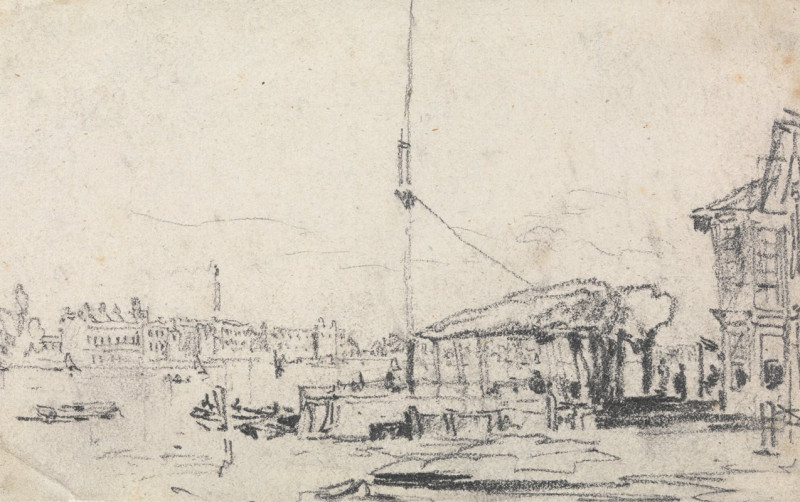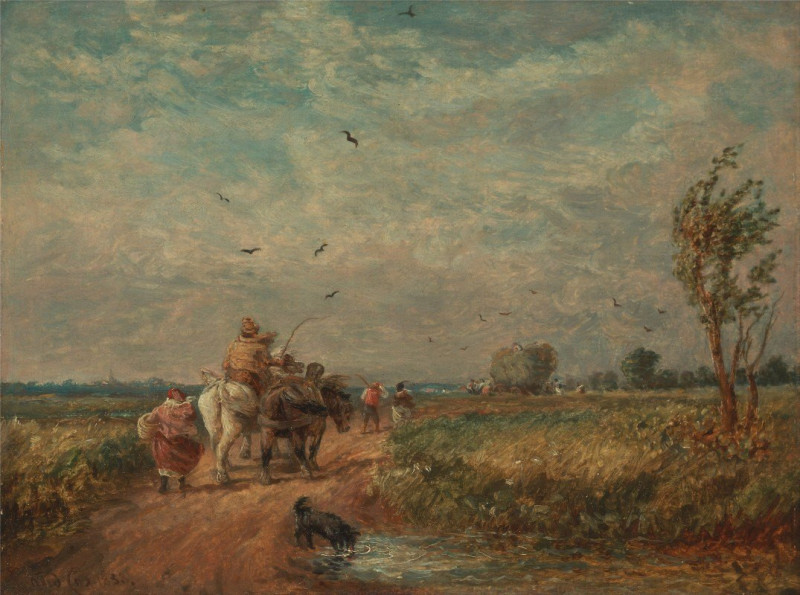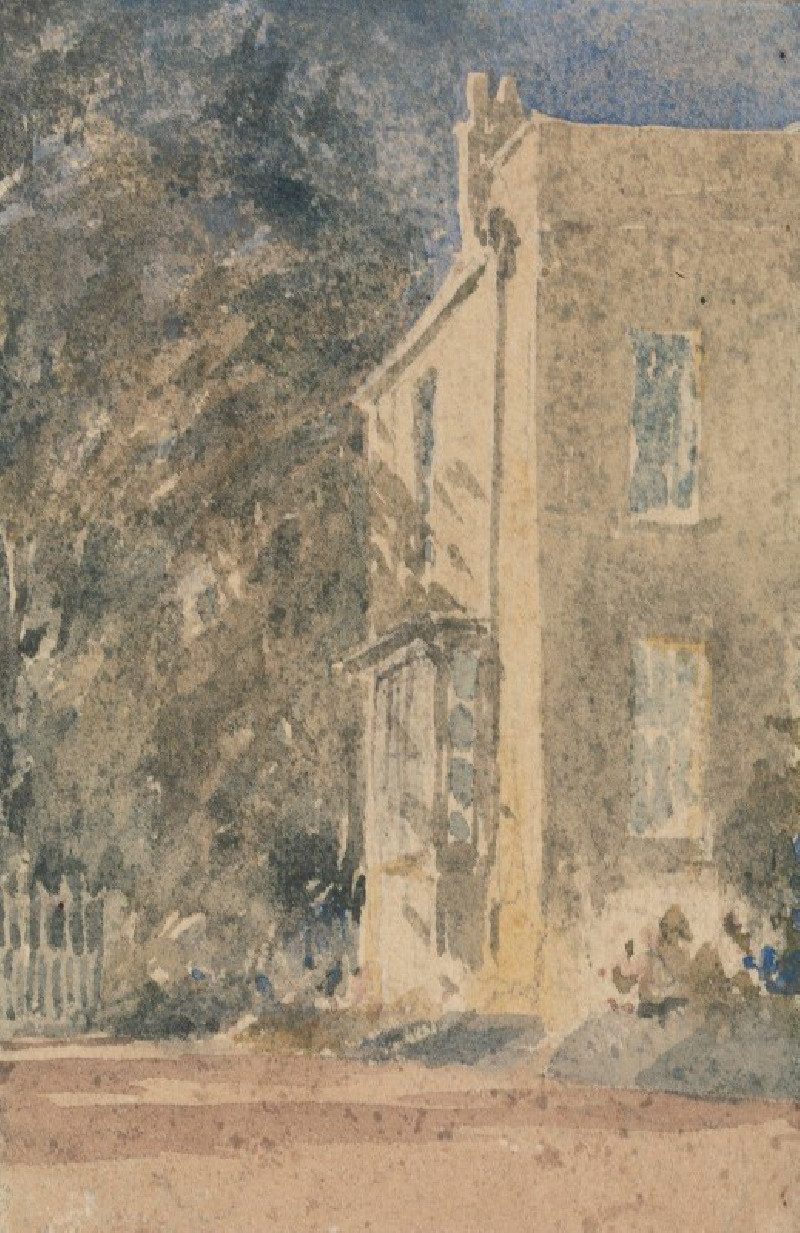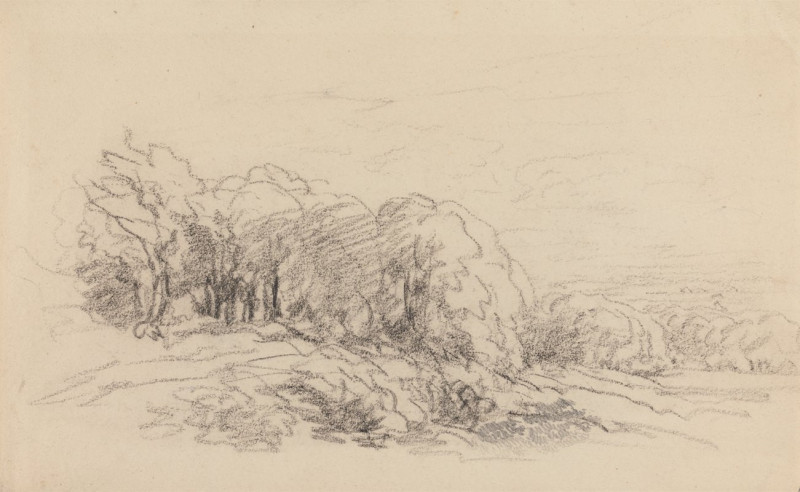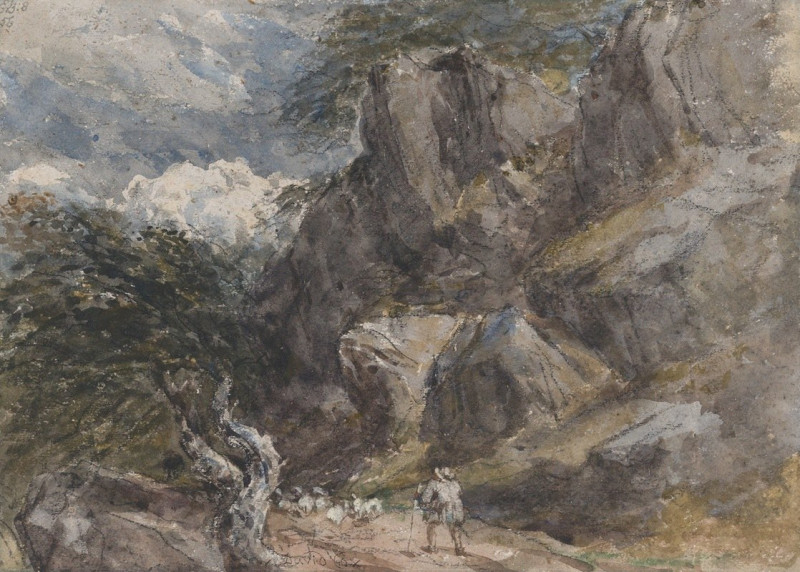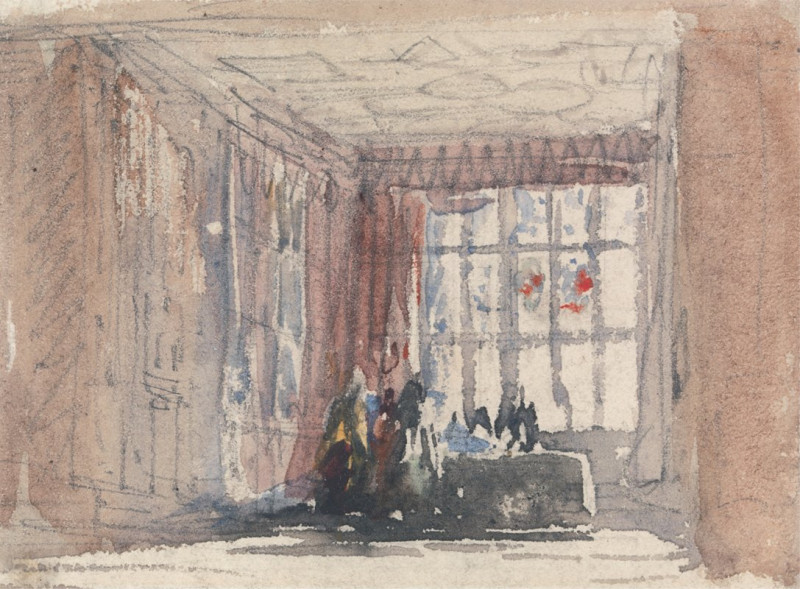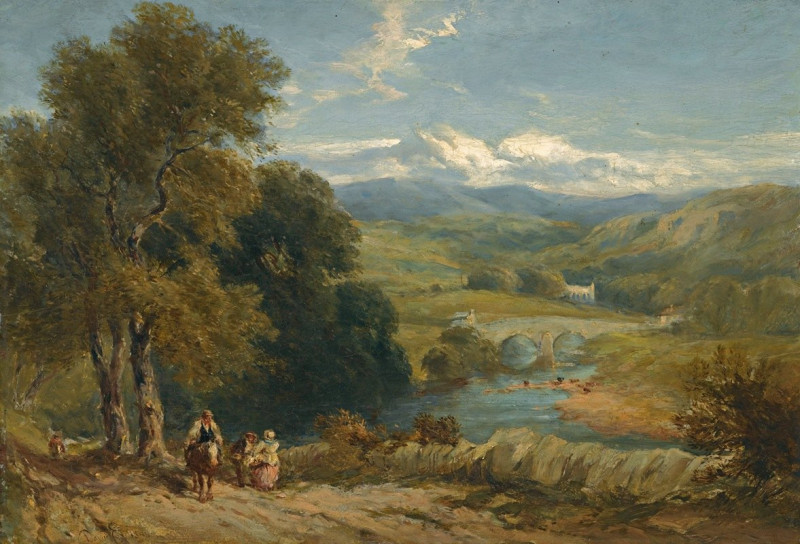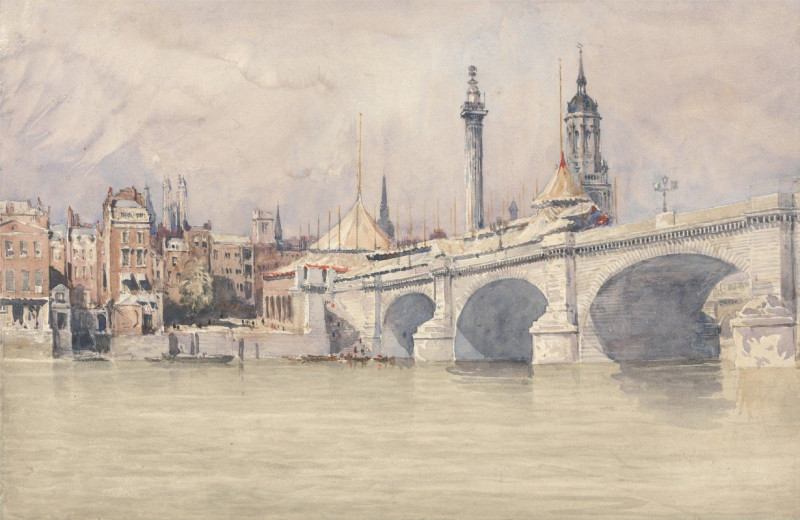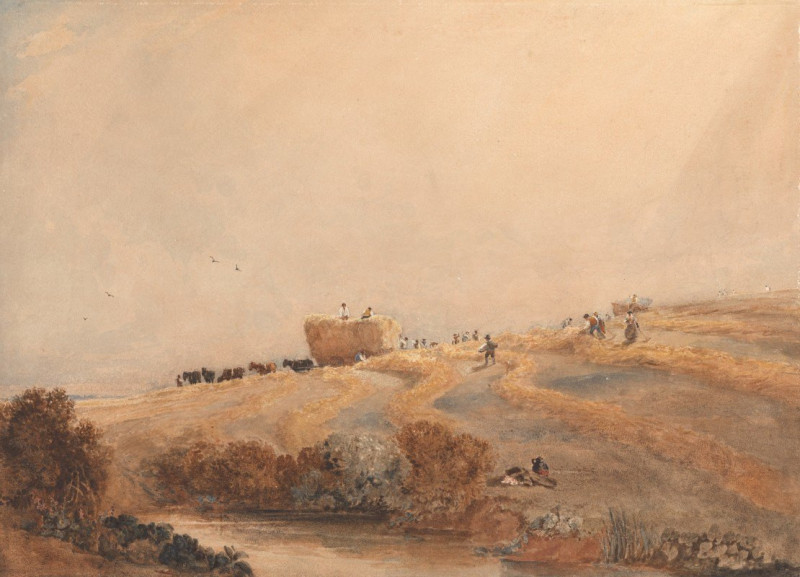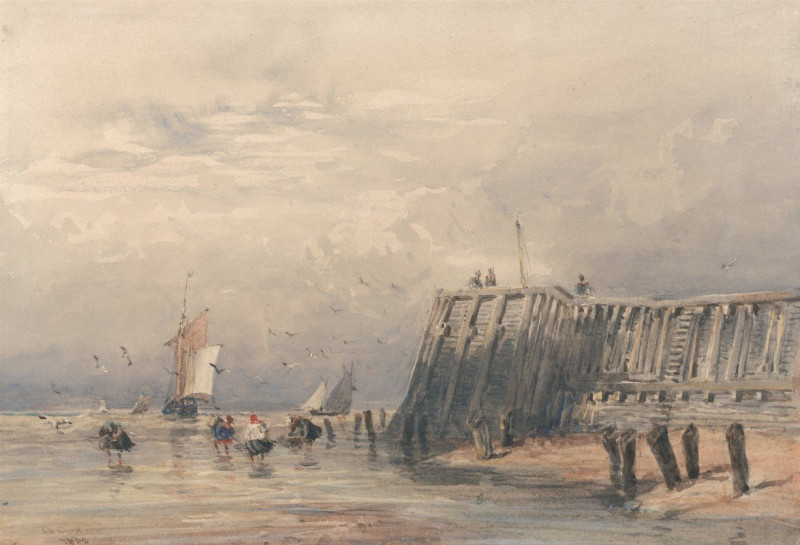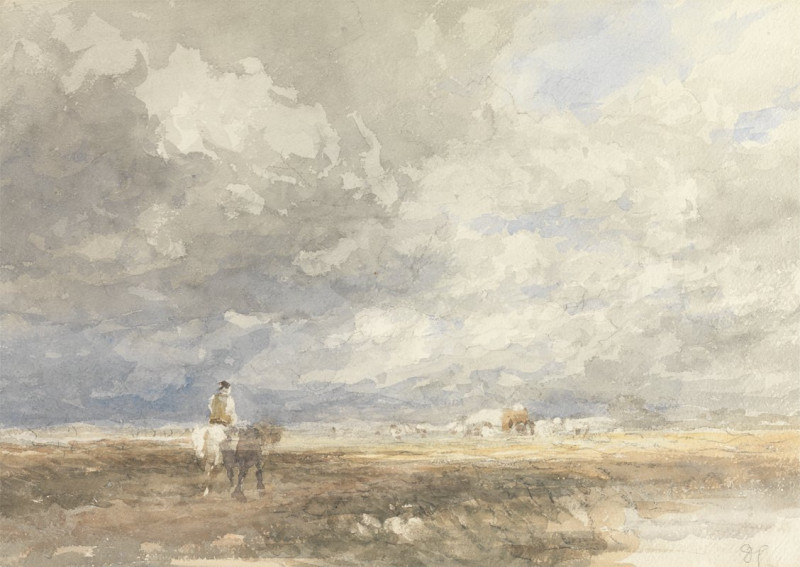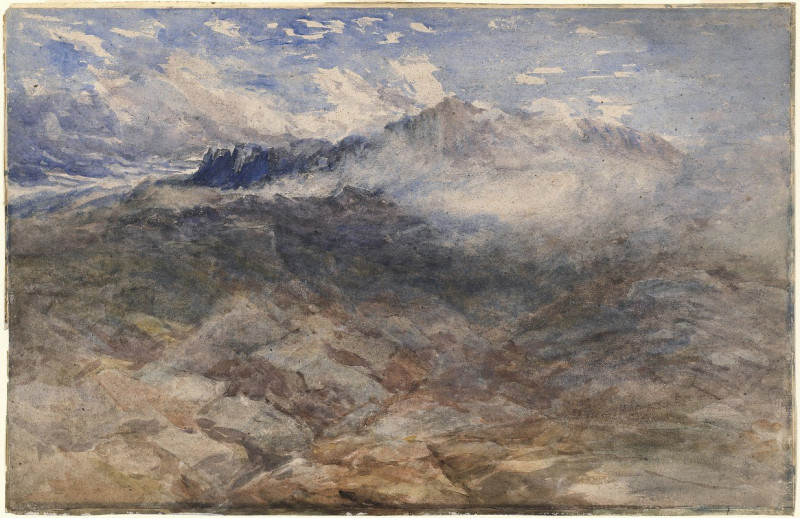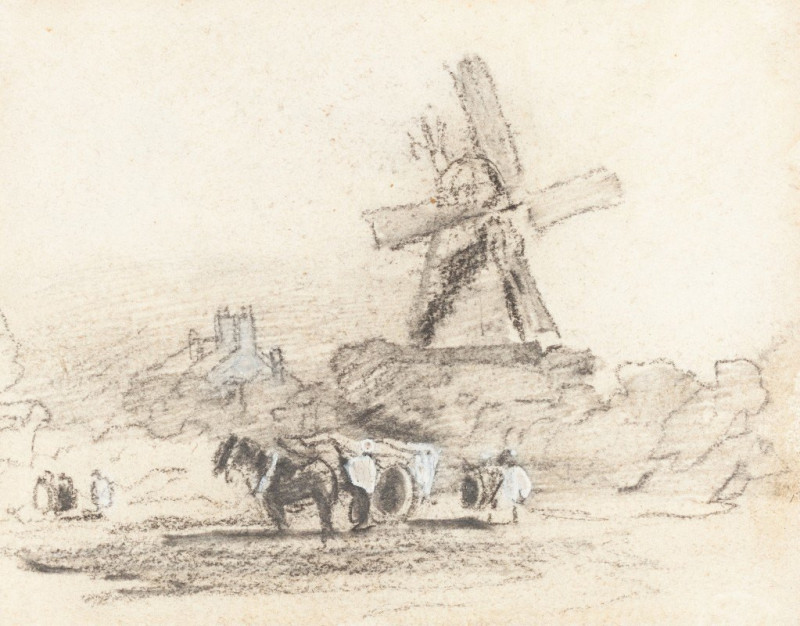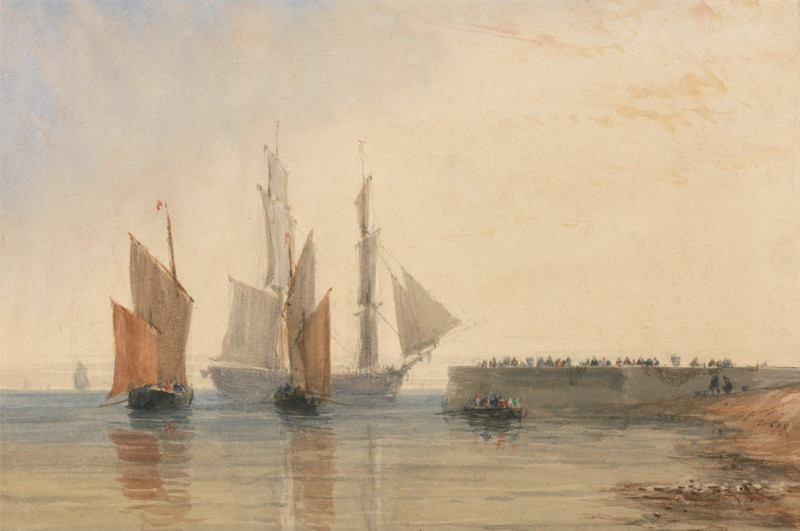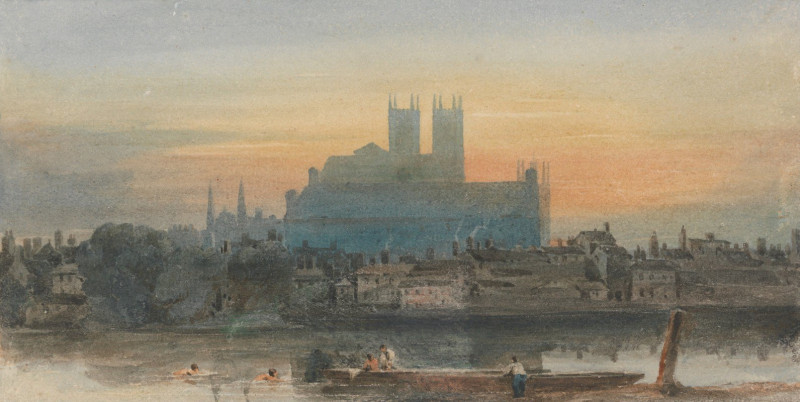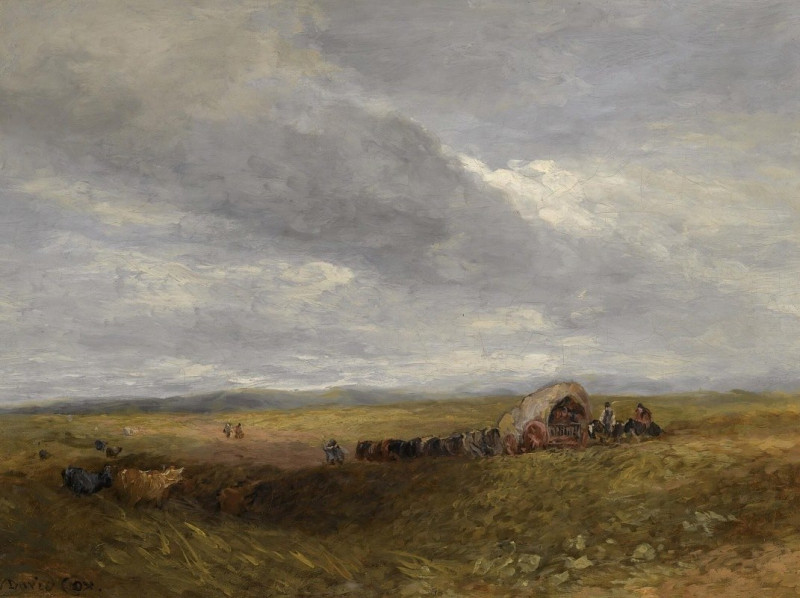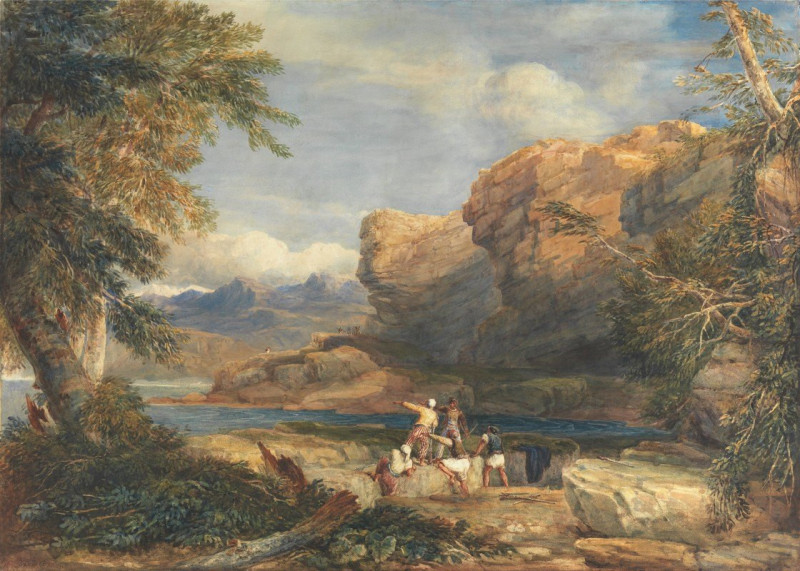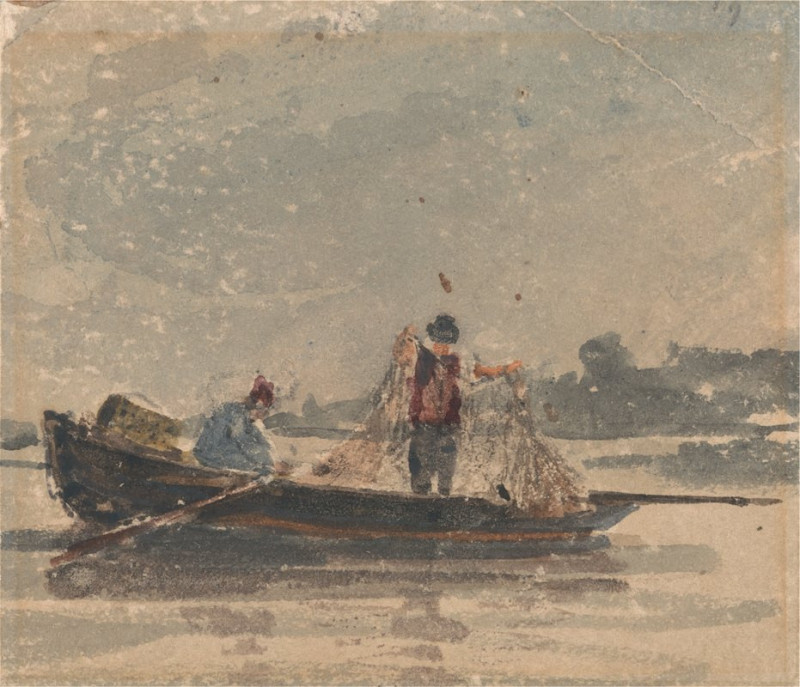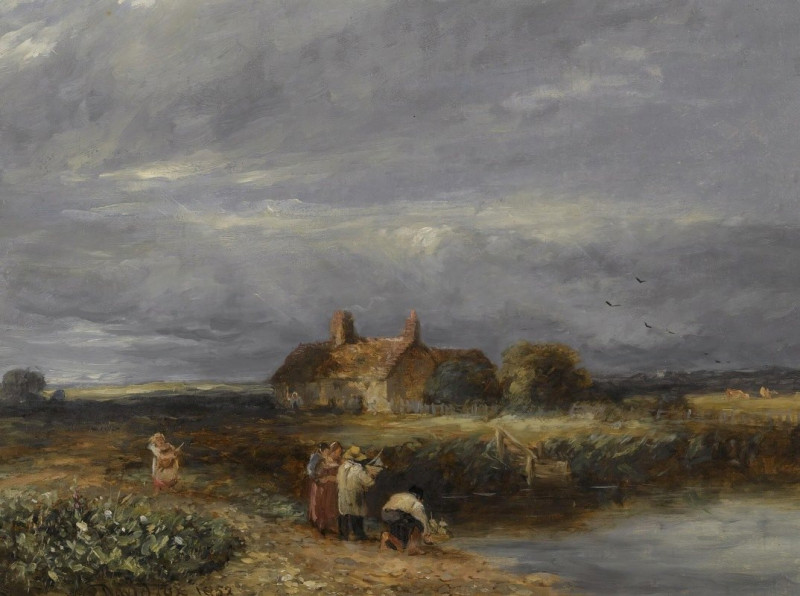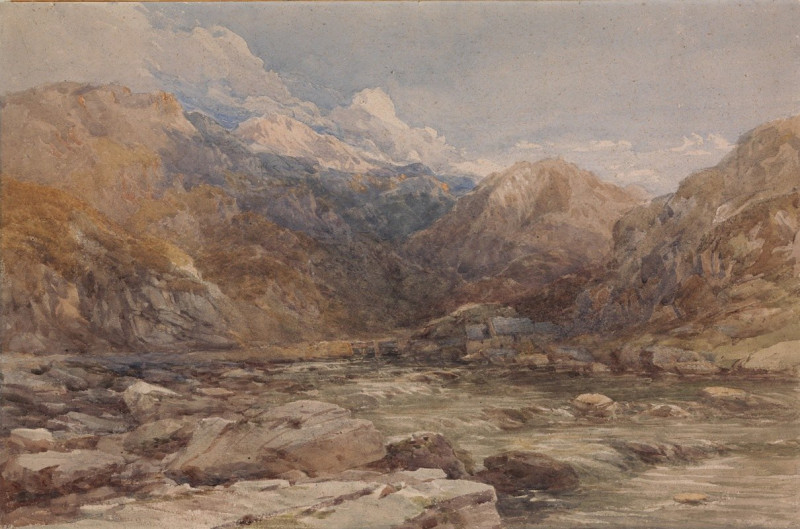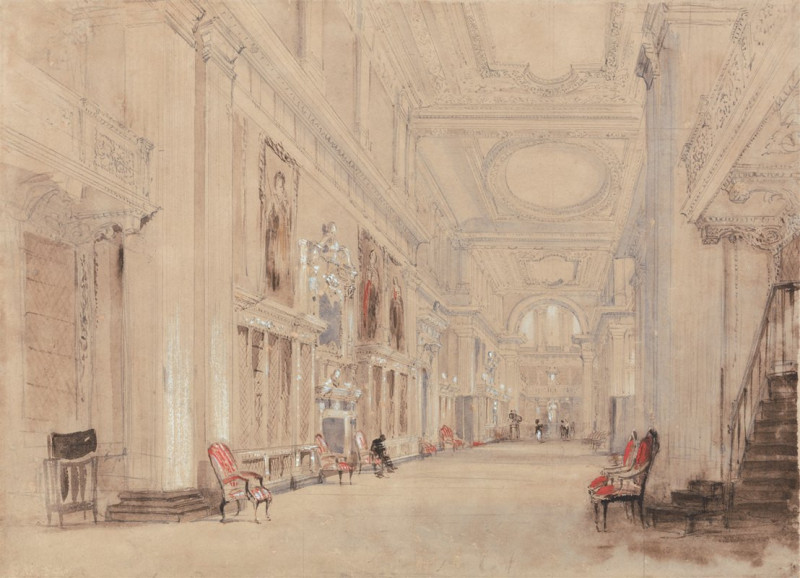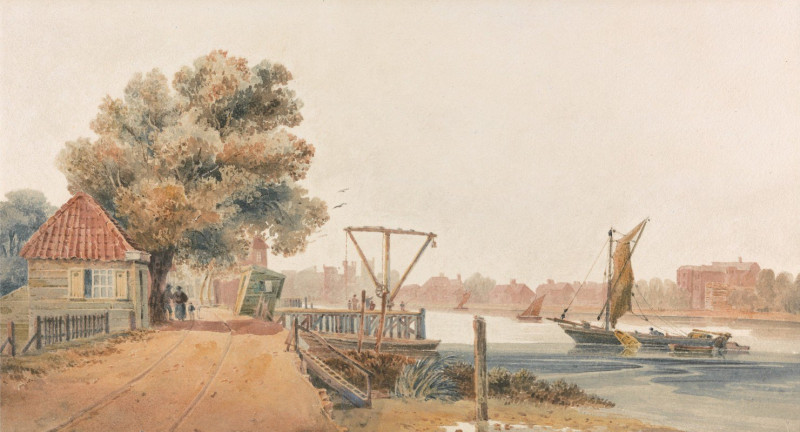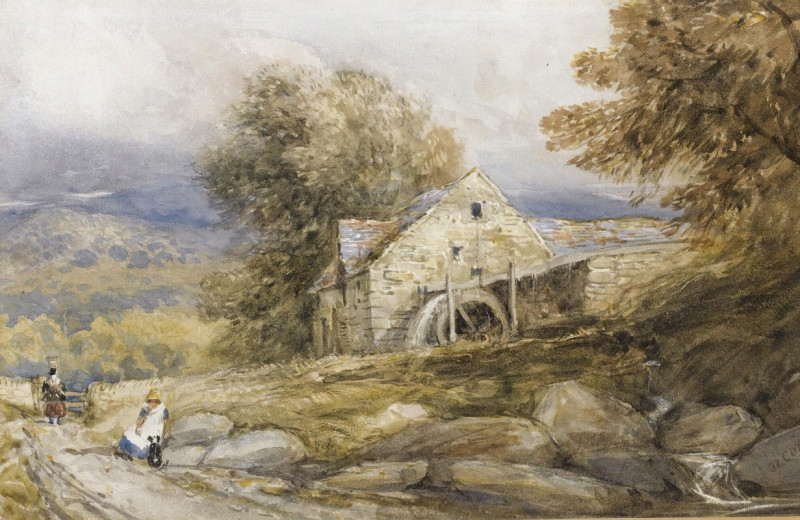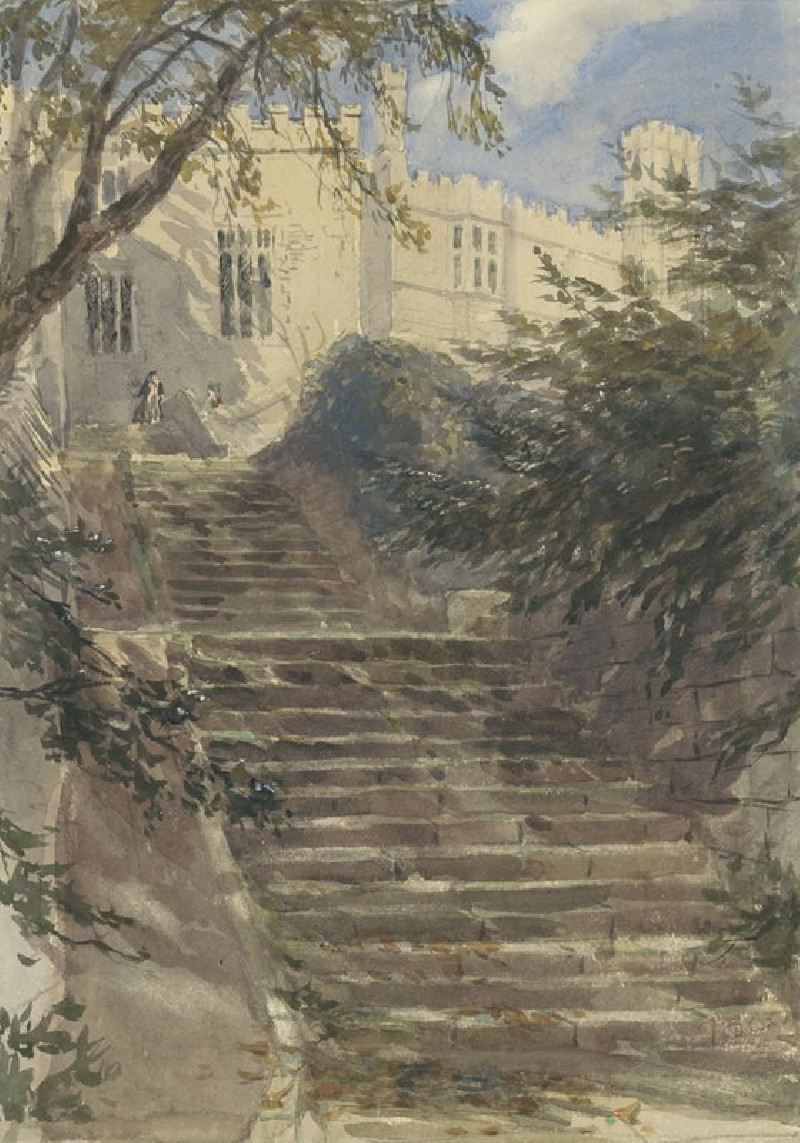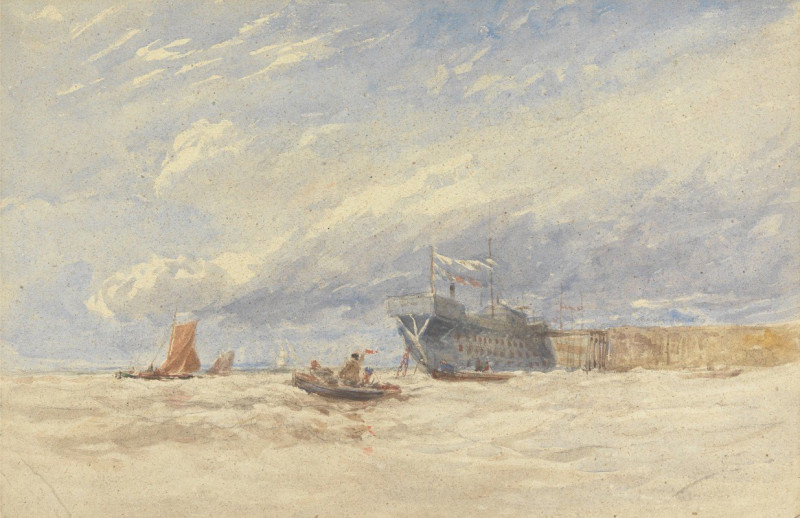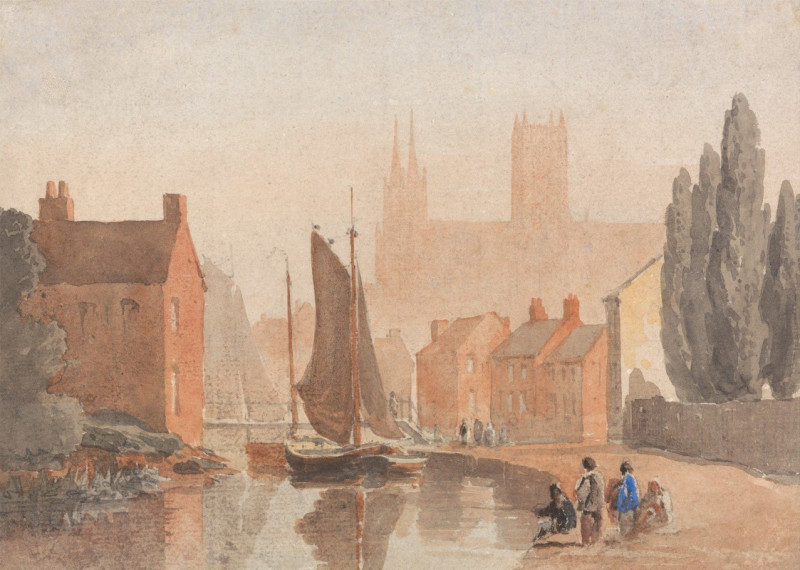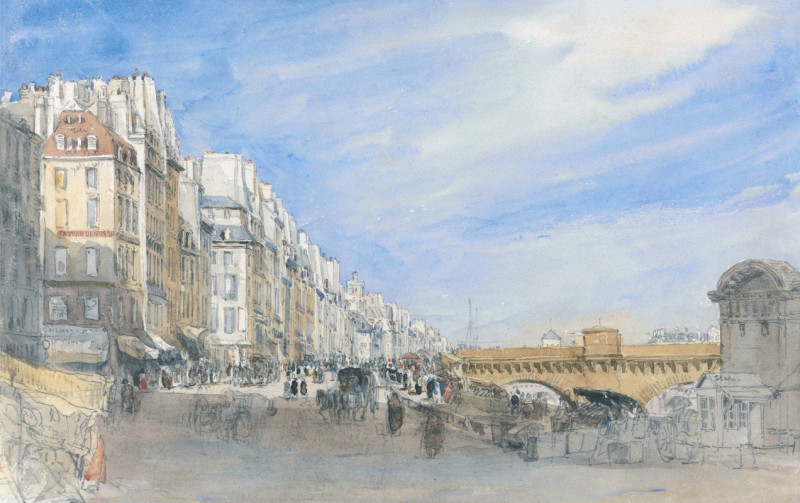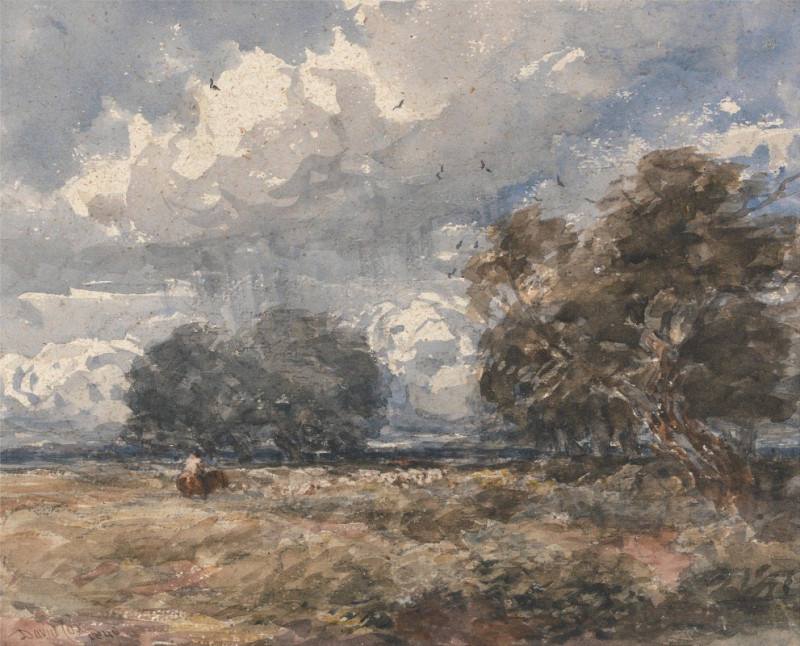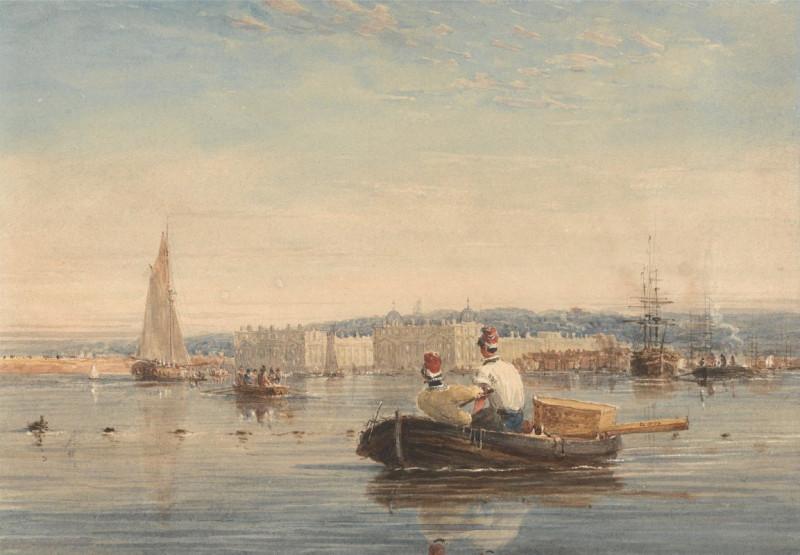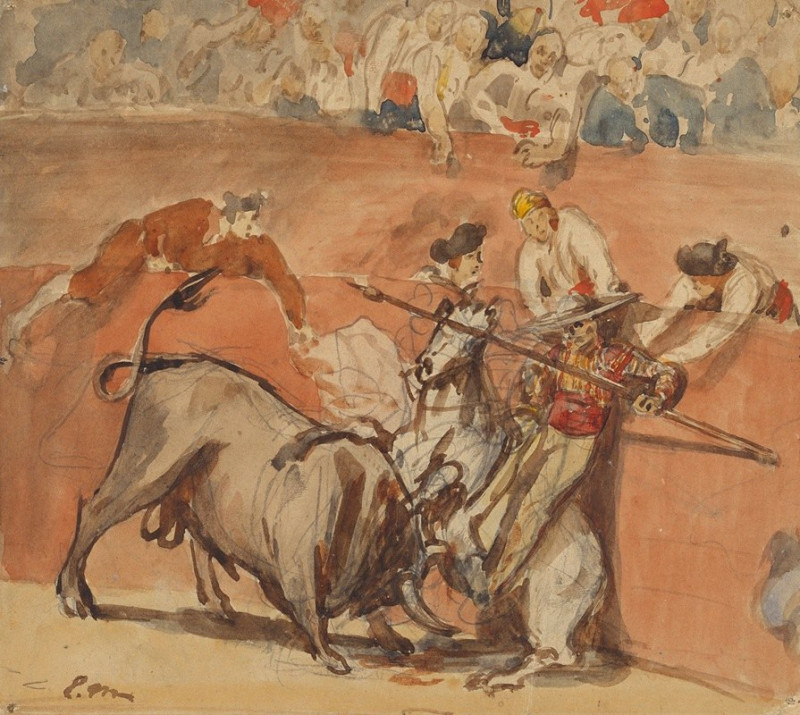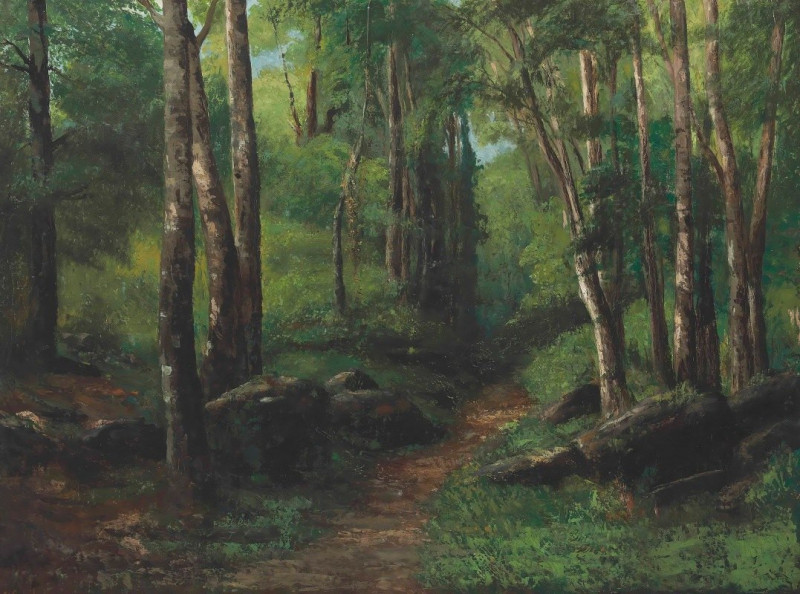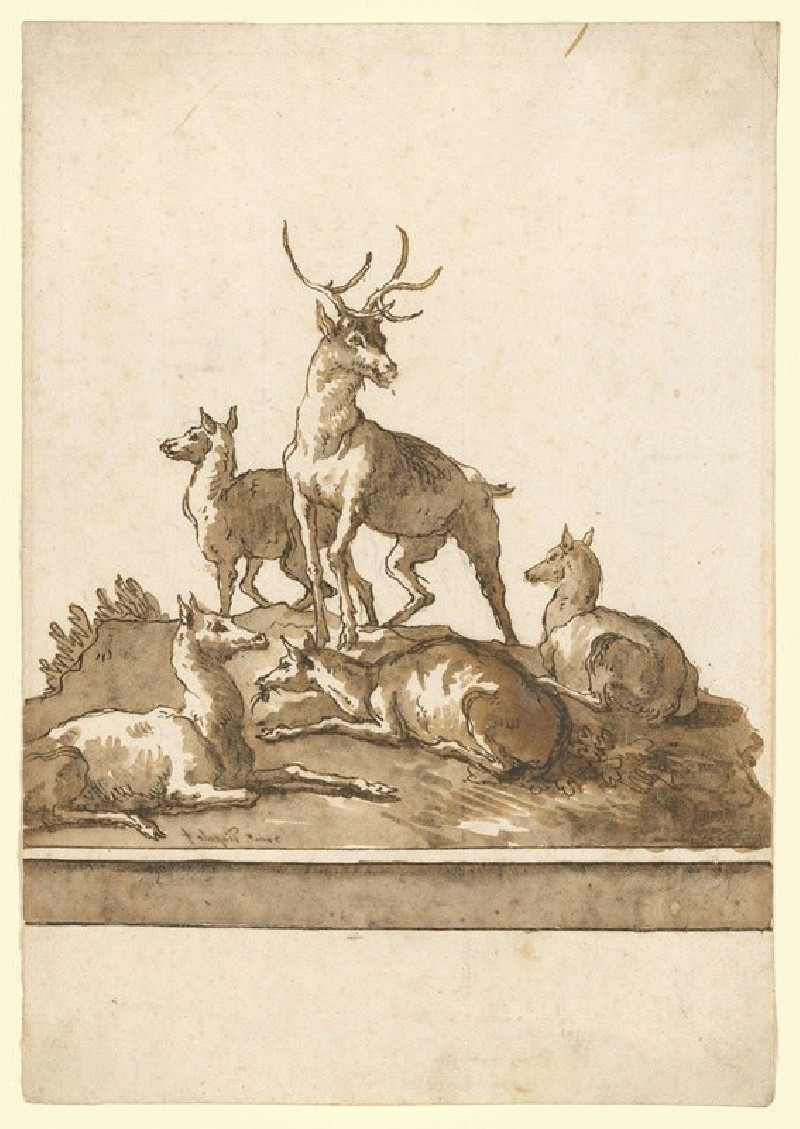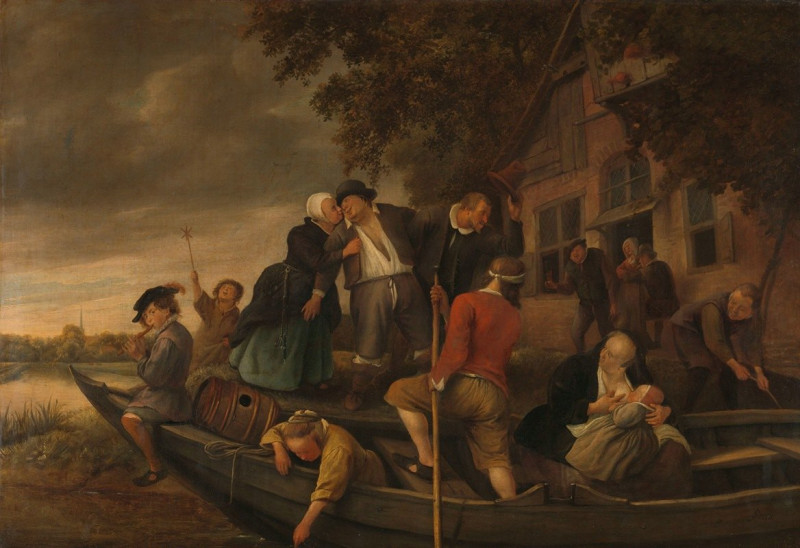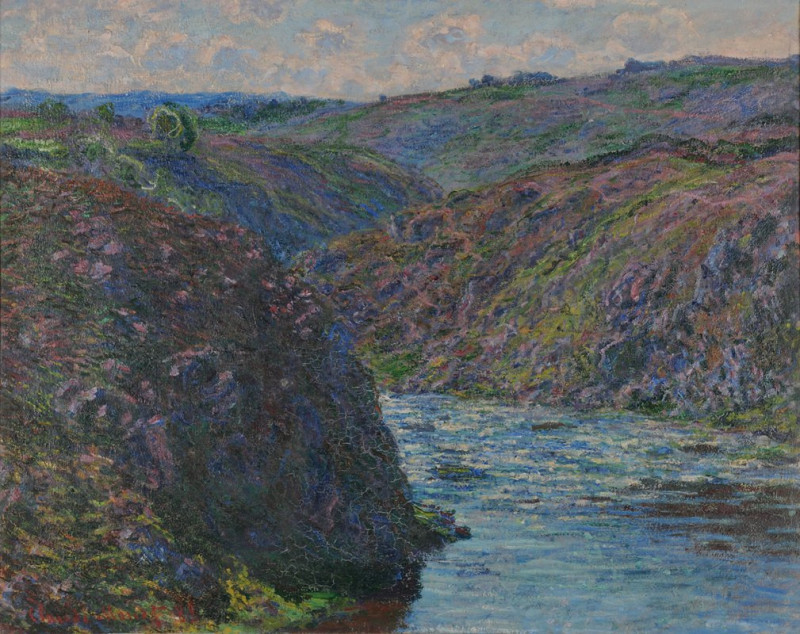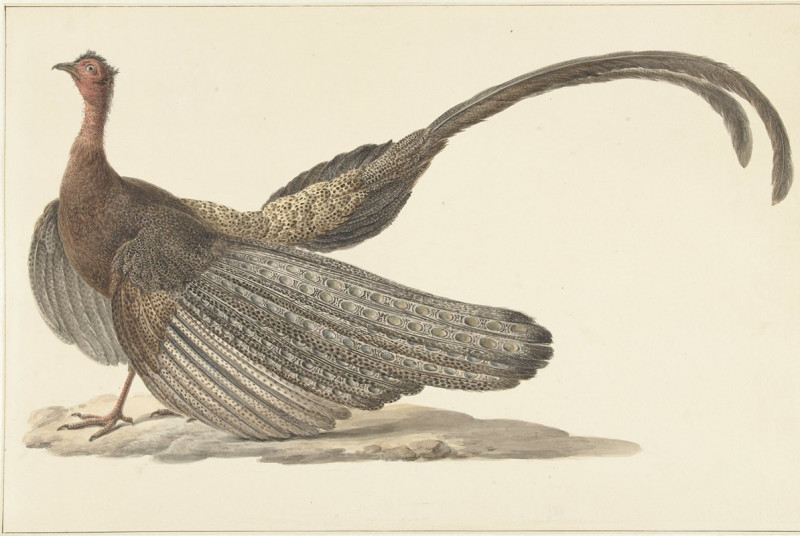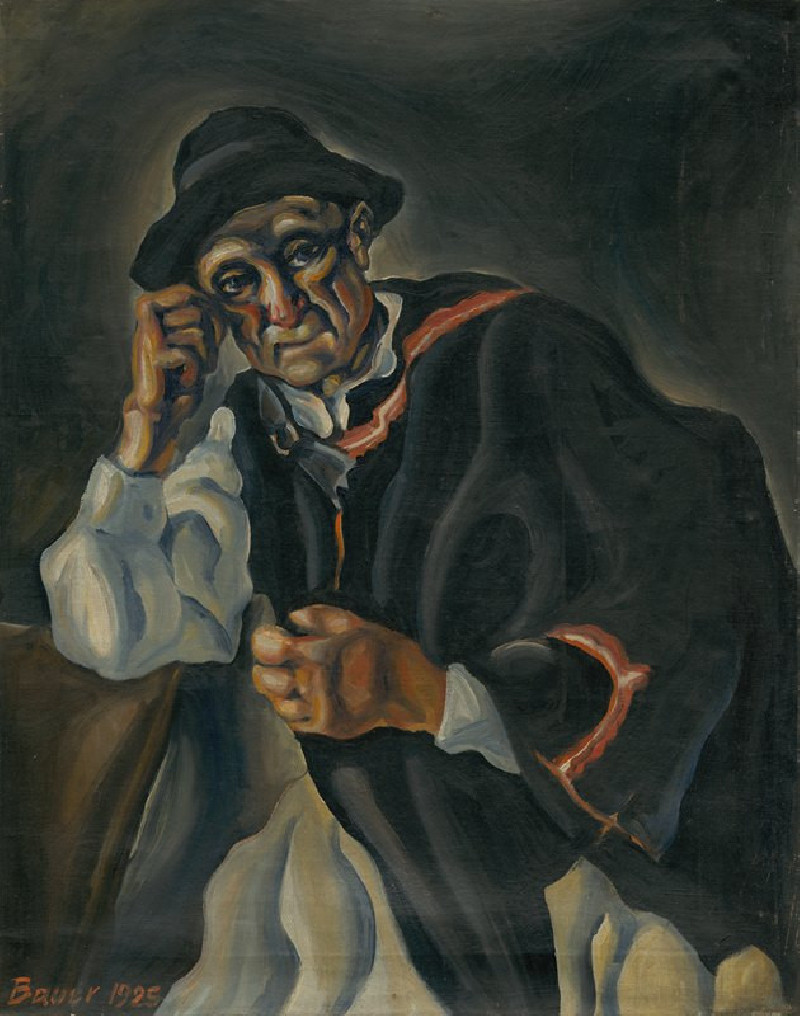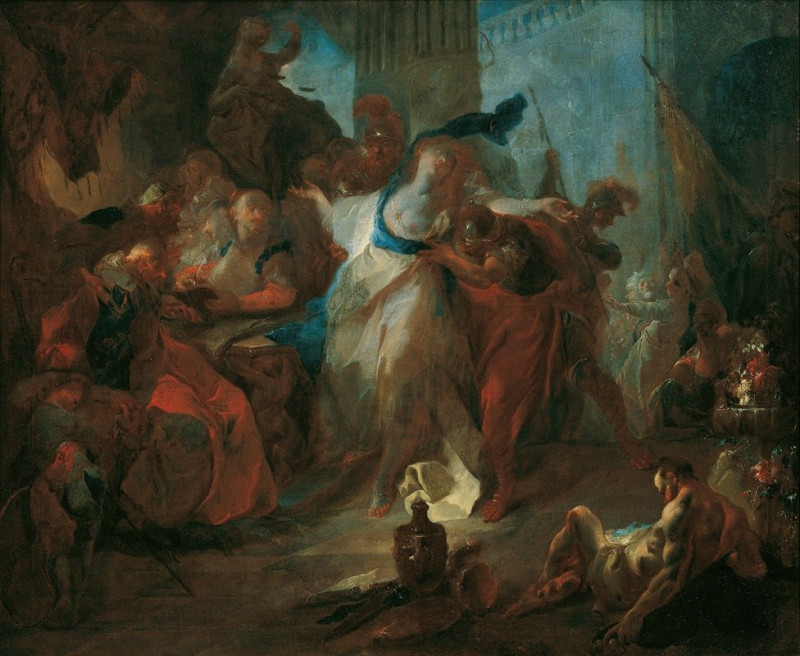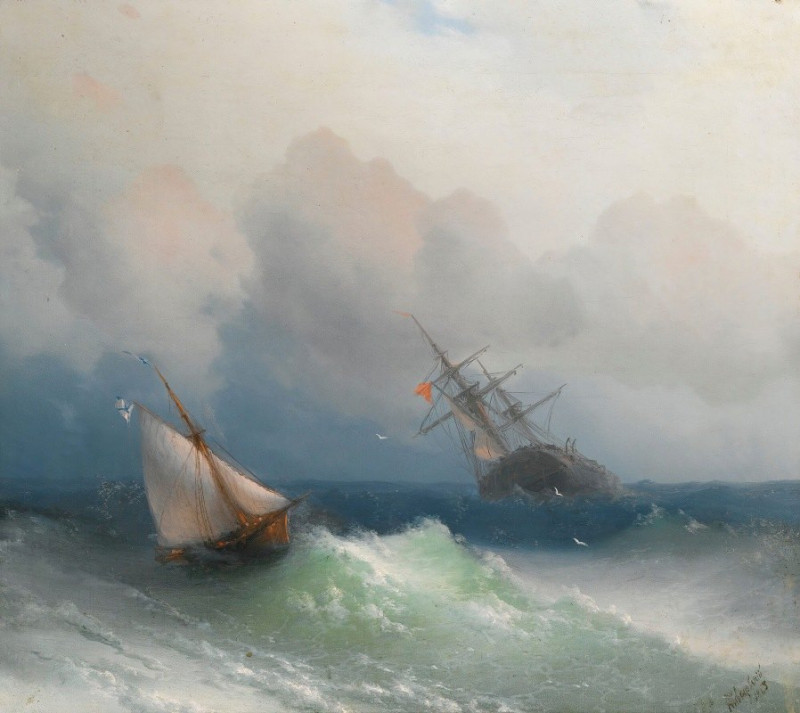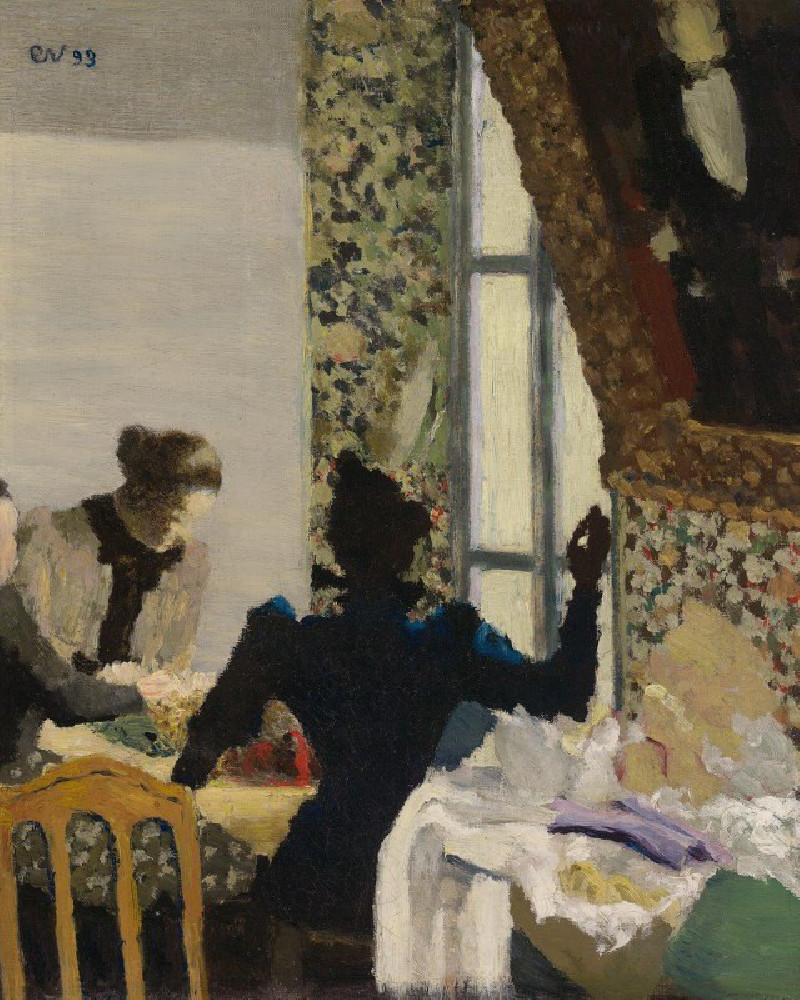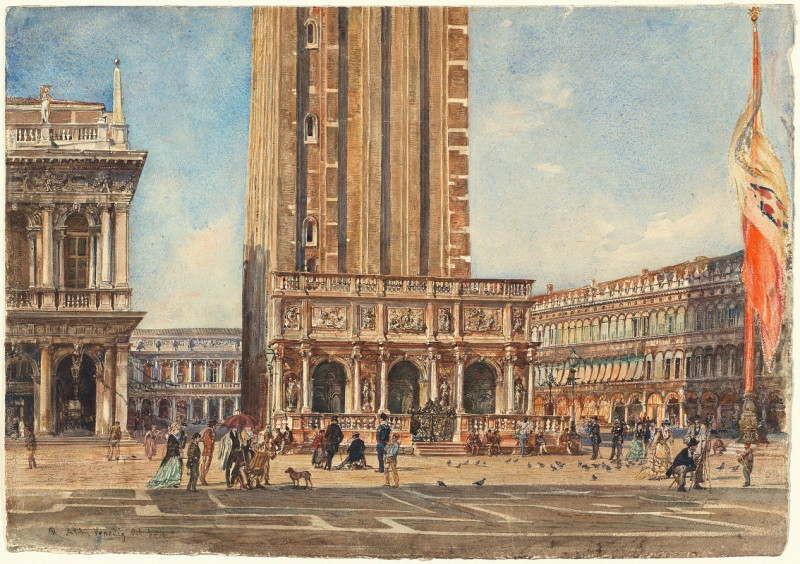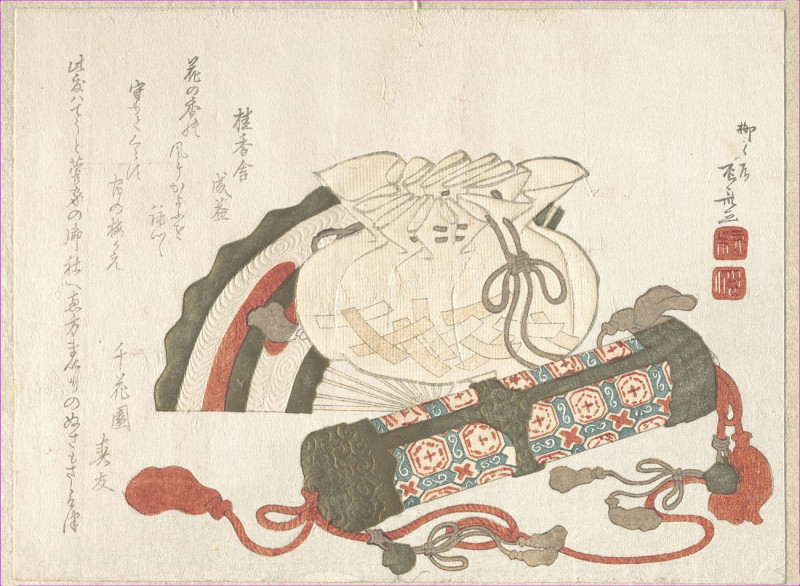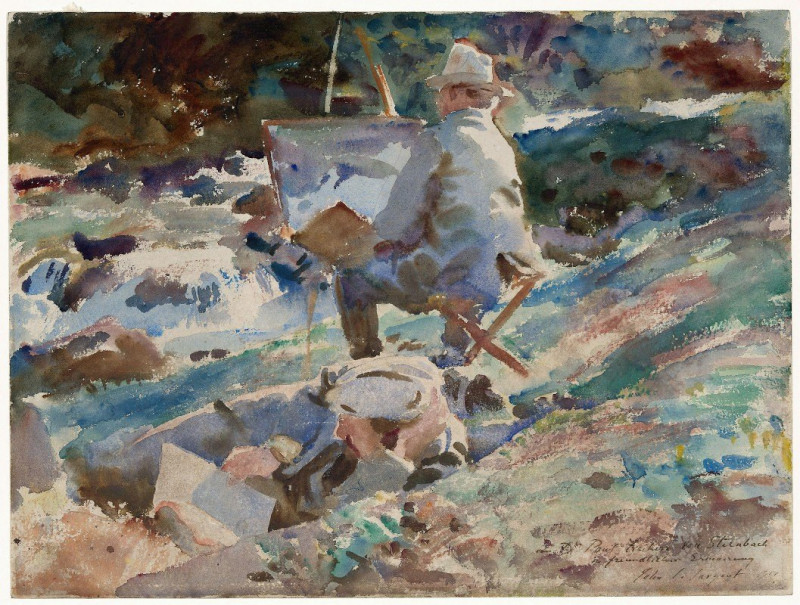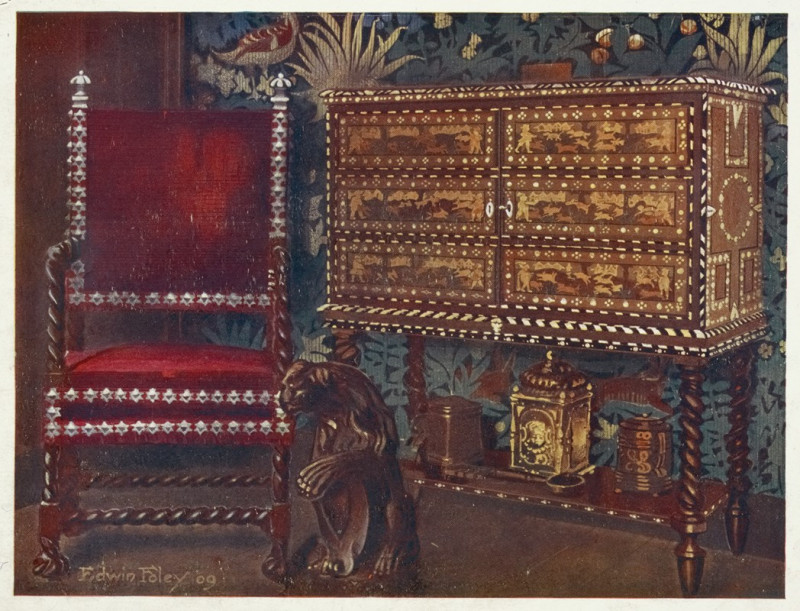A View of the Scheldt (1826)
Technique: Giclée quality print
Recommended by our customers
More about this artwork
Explore an authentic sketch from the prominent British artist, David Cox, with this delicate and evocative piece titled 'A View of the Scheldt' created in 1826. This masterpiece is one of Cox’s insightful explorations into landscape and everyday life, capturing the bustling activity along the banks of the Scheldt River in a faint yet dynamically composed sketch.This image, drawn primarily in black and white, offers viewers a subtle yet deeply absorbing view of riverfront activities. In the sketch, various boats are dotted along the calm waters, hinting at the river's importance as a conduit for commerce and communication. The details of the boats, ranging from small rowboats to larger flat vessels, suggest a lively interaction between man and nature.On the riverbank, one can discern figures engaged in daily activities, perhaps loading or unloading goods, which underscores the economic vitality of the area. The buildings along the bank are sketched with a light touch, yet they effectively portray the architectural styles of the period, likely conveying the urban backdrop against which these river scenes unfold.Overhead, a softly suggested sky completed with delicate lines, stretches across the composition, providing a sense of calm vastness above the riverine hustle. The sketch, while minimalistic in detail, conveys a potent sense of place and moment, indicative of Cox’s ability to capture the essence of a scene with just a few strokes.'A View of the Scheldt' stands as a testament to David Cox’s masterful capability to convey atmosphere and environmental context, making it a precious piece for both art enthusiasts and historians alike.
Delivery
Returns
David Cox (29 April 1783 – 7 June 1859) was an English landscape painter, one of the most important members of the Birmingham School of landscape artists and an early precursor of Impressionism.
He is considered one of the greatest English landscape painters, and a major figure of the Golden age of English watercolour.
Although most popularly known for his works in watercolour, he also painted over 300 works in oil towards the end of his career, now considered "one of the greatest, but least recognised, achievements of any British painter."
His son, known as David Cox the Younger (1809–1885), was also a successful artist.

